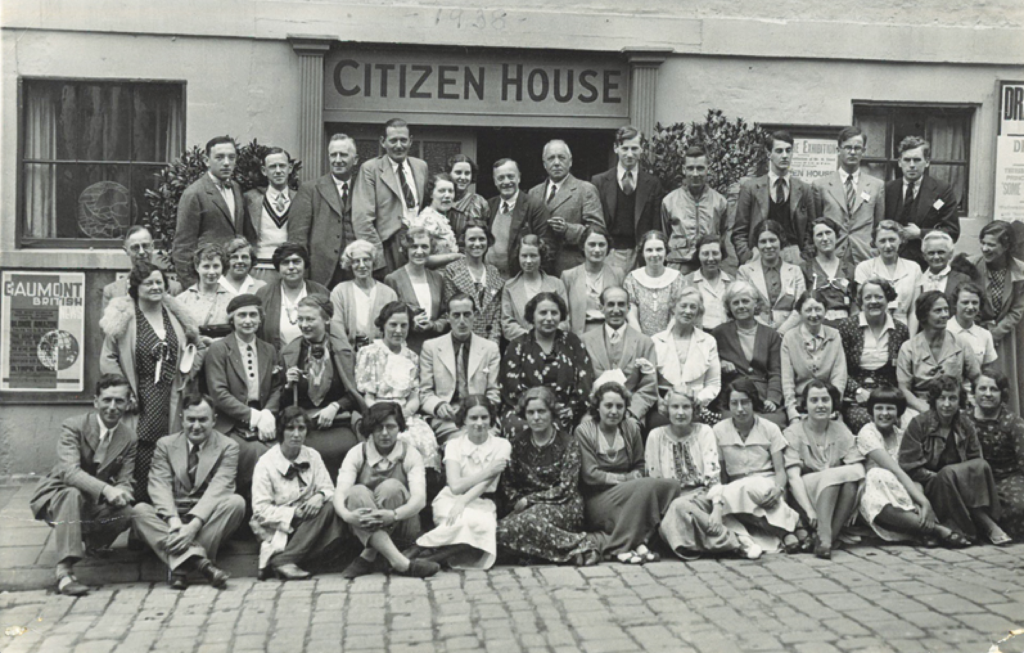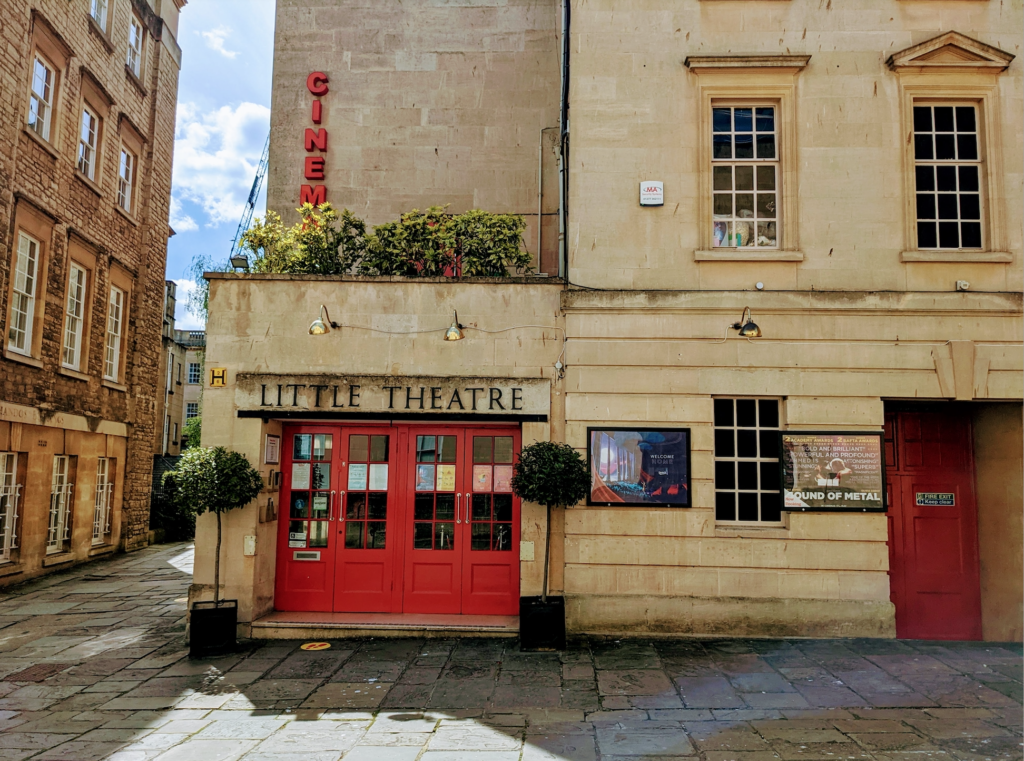The Everyman and the Little Theatre: An interview with Hilary King
Posted 8 June 2023
In 1933, when the Everyman Cinema was opened by James Fairfax-Jones, he shared the premises with Consuelo de Reyes, Hilary’s mother, who was a community theatre director and playwright. This arrangement lasted until 1948 when Consuelo died but the working relationship between the two families continued, as Fairfax-Jones took over the programming of the family’s Little Theatre Cinema in Bath. I was delighted when Hilary, in her lovely Hampstead cottage, was able to fill in the details of this little- known collaboration which lasted until the death of Fairfax-Jones in 1973
Consuelo de Reyes moved to Bath in 1915 to become assistant to Helen Hope, JP and pioneer in community arts and education. Consuelo put on drama activities for those who had little access to the theatre. These took place in Citizen House, a large 18th residence which functioned as a home, a theatre and a community centre. Along with her husband Peter King, who was a stage designer, she put on plays and drama courses in both the Everyman in London and Citizen House and then the Little Theatre in Bath.

In 1936, the family experienced a major trauma. Consuelo and her husband were in London at the Everyman, when they heard that a fire had broken out In Citizen House. Hilary and her sister Helen were trapped upstairs on the fourth floor and had to be rescued by the fire brigade. The building was completely destroyed. Fortunately, the couple had just opened the Little Theatre nearby which continued the hybrid model of cinema and theatre. By 1939 the cinema had moved from news to feature films.
Theatre at the Everyman Cinema
The Everyman Theatre was well known in the 1920s but, by the early 1930s, it had fallen on hard times. Consuelo took it over in 1933 as a London base for her drama courses. These two week courses, held three times a year in holiday periods, taught basic theatre skills, from acting to scenery and costumes, to teachers and aspiring amateurs. Hilary recalls that the attendees were mainly women.
Consuelo soon shared the space with the cinema which ran most weeks of the year, but recognition of the building’s double function lay in its name, Everyman Cinema Theatre. Hilary remembers participating in theatrical productions in the 1930s and 40s. Two plays stick in her mind, Masses and Man by Ernst Toller, a German Jewish refugee who wrote about the struggle of the working classes. She and her sister were writhing on the floor in a crowd scene shouting ‘We are the poor who labour on earth Bound to the wheel from the day of our birth’. Also, Thornton Wilder’s Our Town, a 1940s play which was daringly staged with no props or sets. She is no longer sure whether these two were staged in London or Bath. However, she clearly remembers a production in 1947, one of several about Queen Victoria who Consuelo admired as a strong woman, which did take place at the Everyman. Public performances were always held at the end of each week of the courses. These were publicised separately from the films programme. Some, like the Queen Victoria, were ticketed whilst other had a silver collection by way of payment.
Interestingly, the Everyman drama courses and productions continued throughout the War. The family always stayed in the flat on the top floor, a leftover from the days when the original drill hall had an onsite caretaker. Hilary has a memory of being carried up the many stairs to the flat from the side entrance at the age of three. Her wartime memories are vivid. When the sirens sounded the two girls put on their siren suits (one-piece jumpsuits for wear over pyjamas in air raid shelters) and, gas masks in hand, rushed down some ten flights of stairs to the basement. The common room on the street side had a long counter for tea and there was a series of changing rooms and two spiral staircases leading up to the back of the stage.
Hilary recalls Fairfax-Jones looking dashing in his RAF uniform in the war years. Her general impression of him was that he was ‘friendly, open and benign’. She saw a lot of him as he was also their family solicitor. However, she does recall that he and her mother rowed quite frequently and that his disorganised habits resulted in the loss of important papers. After her mother’s death when the Little Theatre became a fulltime cinema, Fairfax-Jones took over the programming from London which involved regular trips to Bath and meetings with Hilary and her sister. In fact there was very little overlap with the Everyman programming. The films were mainly British and Hollywood with only a few foreign language films. The audiences were very different. Hilary describes Bath before the 1960s, when there was an influx of young people, as a ‘retirement home for the forces’. After Fairfax-Jones’ death, the sisters discovered that he had devolved most of the day-to-day work of programming to an assistant who worked from his home office. After eventually meeting her, and realising that she did not have any special skills, Hilary and Helen were emboldened to take on the running of the Little Theatre themselves.
Helen ran the cinema at first but sadly died in 1984. Hilary decided it was now her turn and took over the running of the Little Theatre, combining it with a career in child guidance and family therapy. She tackled every aspect of cinema management including dealing with distributors, writing programme notes and organising special events. She enjoyed working in the cinema industry at a time when there were only three or four women in similar positions. Her commitment, enthusiasm and leadership qualities meant that the Little Theatre successfully survived as an independent cinema until it was taken over by Picturehouse in 2003.
